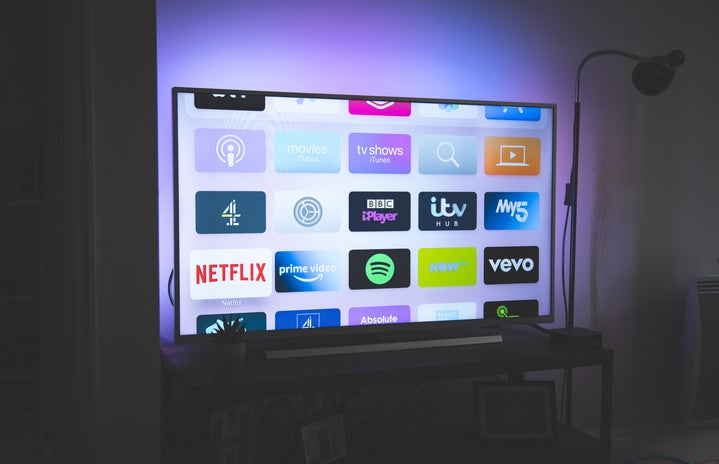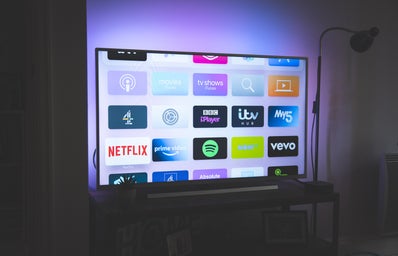Disclaimer: I talk about characters with ADHD much more than other neurodiversity simply due to my own diagnosis. A big problem in media is neurotypical voices having influence in a neurodiverse character’s portrayal, and so I don’t want to add to this stigma. Any autistic characters I mention, I have looked for ASD voices on the topic and researched how the set was run in order to maintain accuracy.
Media representation of neurodivergent people is damaging. There’s no sugar coating it, it’s full of negative stereotypes from your autistic prodigy (high masking with an extraordinary skill) to your ADHD manic who presents as potentially dangerous. So, let’s stop it right there. Here’s my list of neurodivergent characters that really begin to capture what it’s really like to live with these incredible brains.
1) Quinni
This absolute angel is an autistic teenager from Heartbreak High (2022). Quinni is an incredibly lovable character played by Chloé Hayden, a person with ASD. This is where she wins points immediately, all the situations in the show that she finds herself in, she reacts in an honest autistic way. No manic pixie dream girl energy here, just her. On Chloé’s YouTube channel, she talks about how accessible the set was and how staff collaborated with her and asked for her feedback when portraying an autistic character. In Heartbreak High, Quinni deals with challenges like personal relationships with autism, and coping with ableism from those around her. We also get insight into how she copes with her symptoms, such as sensory overwhelm and going non-verbal due to stressful situations. She of course is accompanied by her incredible best friend who shows they really know how to support her. Darren has clearly taken time to understand her and loves her for her whole self, ASD included.
Shape Photo: Netflix
2) Jessica Day
Jess from New Girl is played by the incredible Zooey Deschanel, who in real life is confirmed to have ADHD. Jess and her actress are essentially the same people. Zooey speaks a lot about how she lives unmedicated, using crafts as an outlet, and this is exactly what Jess does in the show. Her hyper organisation, crafting, impulsivity and forgetfulness? All real examples of a person living with ADHD. And in the show her friends don’t treat her like a child, they are supportive and love her for exactly who she is. Although Jess isn’t widely known as an ADHD character, she should be. She depicts ADHD in a non-traditional sense, displaying more traits from the inattentive side of the spectrum, challenging the usual “hyperactive boy” stereotype and letting more of us relate to her on a personal level.
3) Jake Peralta
The widely loved Jake Peralta is known for his impulsivity and distractedness, but also for his hyperfocus. Brooklyn 99 has done an amazing job nurturing Jake’s character. He is a talented detective, good at what he does, and presents a lot of ADHD traits with a little comedy. His bathtub of potentially important letters? His desk drawers filled with junk? His incredible number of hobbies? And yet he can hyperfocus on a case and not stop until it is closed. I personally love this portrayal of hyperactive ADHD in media because instead of blindly following stereotypes, Jake is a lovable, talented character. His friends and colleagues support him and don’t condescend him for being the way that he is. Modern media needs more of this.
4) Renee
Renee is a non-verbal autistic girl portrayed in a Disney short film Loop. Instead of depicting her as unintelligent and slow, or the stereotypical autistic prodigy, she is just a kid. This short film is all about two characters trying to understand each other, learning to communicate between the barrier of being neurodiverse and neurotypical. Renee as a character moves her fingers a lot as a stim, she struggles to make eye contact, she also experiences sensory overwhelm. Renee is voiced by Madison Bandy, a young autistic woman who is also mostly non-verbal. Due to the stresses of being in a recording studio, all of Madison’s audio was recorded from her home, where she was more comfortable. The short story was also consulted on by the Autistic Self Advocacy Network. These guys were heavily involved in the whole process, watching and rewatching scenes and giving input on what is portrayed accurately and what should be changed.
5) Phil Dunphy
In Episode 18, Season 1 of Modern Family, characters are considering a diagnosis for one of their kids, and in doing so, draw some conclusions about Phil. As the list of symptoms is read out, we are shown examples of these behaviours. He starts by trying to help his son with a school project, then he starts searching up how pencils are made. This leads to his discovering that the desk chair needs fixed, then the light. This resonated with me so much as an ADHD person. When you end up leaving a dozen unfinished tasks, constantly getting distracted and forgetting what you were just doing. Of course, it’s portrayed in a comedic light, this is often far more frustrating than they insinuate. However, I love this representation so much due to the authenticity. At no point is Phil trying to prove he has ADHD, we clearly see he does, he is only interested in his current task.
Neurodivergent Hall of SHAME
Barney Stinson
In episode 5 Season 3 of How I Met Your Mother, Barney is in a class to learn all about the love interest of the show. Training to be a good partner. However, in this episode during a class scene he starts displaying typical ADHD symptoms. Not only does he not mask at all (a person with ADHD usually pretends to be more functional than this, and we do understand when something isn’t socially acceptable), but he’s called a bad student and it comes across as though he isn’t trying. A common misconception about ADHD people is that we aren’t trying, we are. We just struggle to understand things in the same way. Class environments can make or break our entire learning and this portrayal just adds to the stigma.
Sheldon Cooper
Sheldon is a character that is autistically coded. This means that he presents many typical traits but is not ever directly labelled as autistic. In The Big Bang Theory, he is a genius (autistic-prodigy) with a few niche interests. His friends act annoyed with his behaviour and need for routine, often this results in him being treated like a child and not respected by those around him. If that weren’t enough, he is also shown to be emotionally dependent on Penny, much like a child is to a parent, once again enforcing this negative stereotype.


